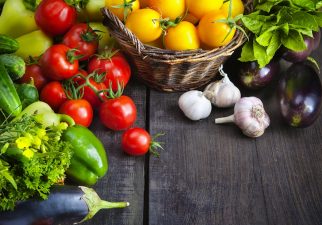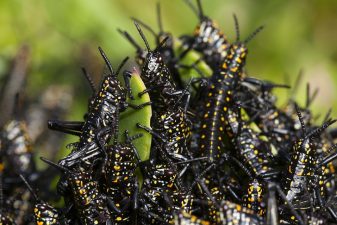 The people of Siwa Oasis have been growing dates for 3,000 years. And while they cultivate many varieties, three that are native to the desert community are close to extinction. Don’t worry too much, though, because the Siwa Community Development Environmental Conservation (SCDEC) group is working to save them.
The people of Siwa Oasis have been growing dates for 3,000 years. And while they cultivate many varieties, three that are native to the desert community are close to extinction. Don’t worry too much, though, because the Siwa Community Development Environmental Conservation (SCDEC) group is working to save them.
Comprised of one member from each of 13 villages in Siwa Oasis (representing 10 different Berber tribes), the SCDEC strives to maintain the conditions that are necessary to maintain the endurance and integrity of this longstanding agricultural tradition – growing dates in brackish water in the middle of the desert.
Assisting the group with their efforts to manage 5,000 hectares of agricultural land under the Presidium project is the Slow Food Foundation for Biodiversity. The group articulates their intention on their website.
“The Presidium’s goal is to promote the oasis’s highest quality dates on the national and international market, protect heritage date varieties at risk of extinction and assist growers to control the entire production chain – from planting to export – and to certify the product as fairtrade and organic.”
Related: Dates – a global history (interview)
Dates are planted on rehabilitated land in the Siwa Oasis. First the top soil is removed and replaced with a mix of sand and manure – probably from the many donkeys that are still used as a main form of transportation. That new mix is then flushed with fresh water.
Once the new plot has been laid, medicinal herbs are planted before palm, olive trees and other crops.
It takes 10 years roughly before a date palm tree will start producing fruit, but once it does, a single tree will produce roughly 110 pounds in a year. And they are hand picked.
Typically men, and I’ve witnessed this myself with Manar Moursi, who works with palm fiber artisans outside of Cairo, will scale the side of the soaring palm tree with nothing more than a fiber belt, and place the ripened fruit in a basket made of the same material.
The Siwa Oasis is itself endangered. Situated not far from the border with Libya and near the Mediterranean Sea, it is a sleepy village full of smiling, warm people. And while they fiercely protect their precious heritage, their community is also threatened by tourism, environmental degradation, and overall modernization.
Initiatives like this provide hope that not all special places will be ruined by the inexorable march of globalization.
Stock image of dates | Shutterstock



